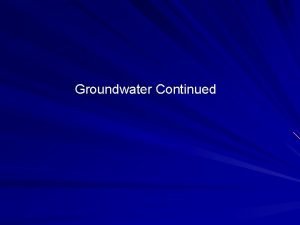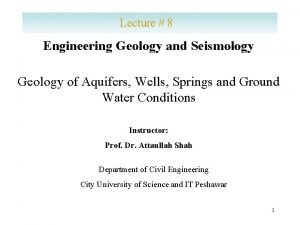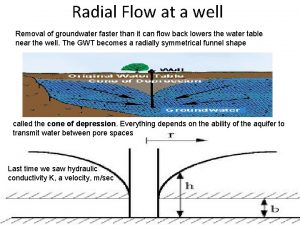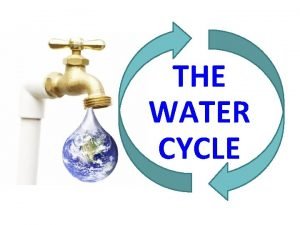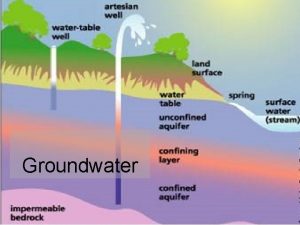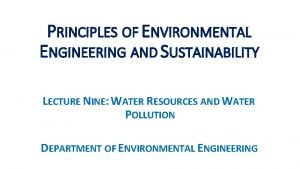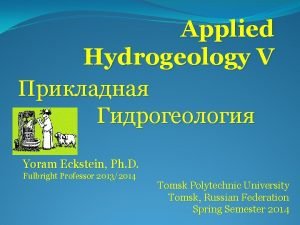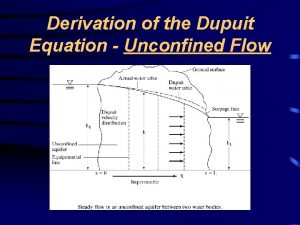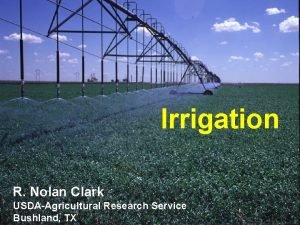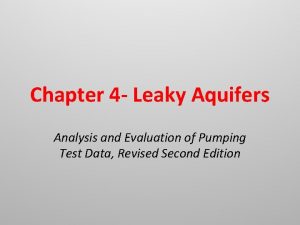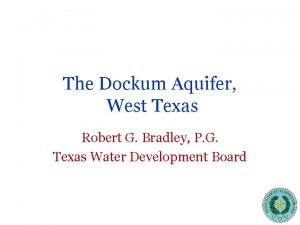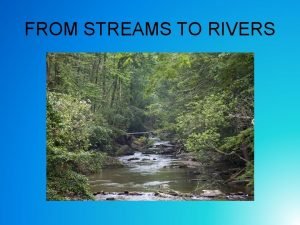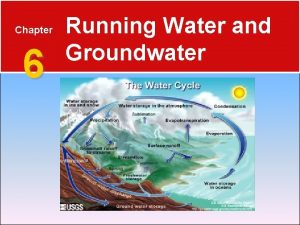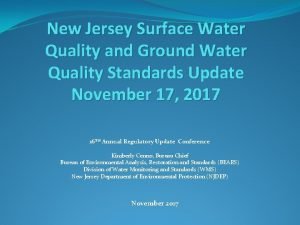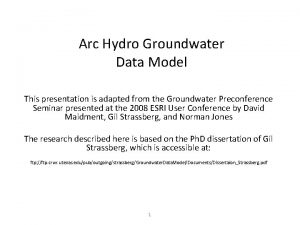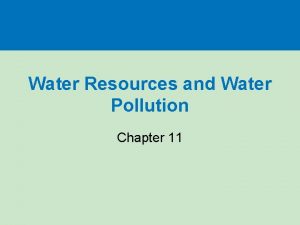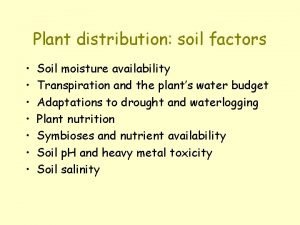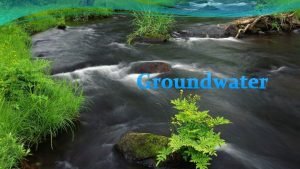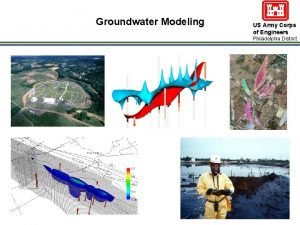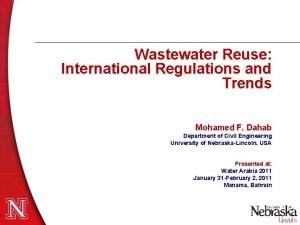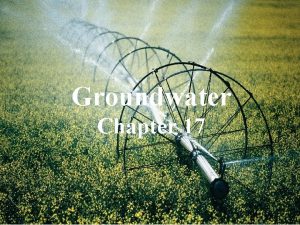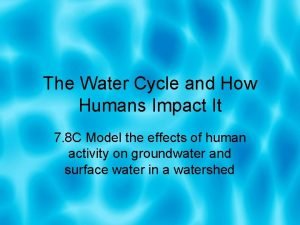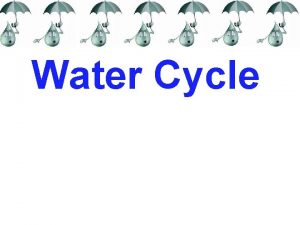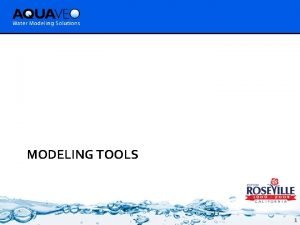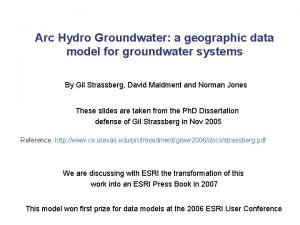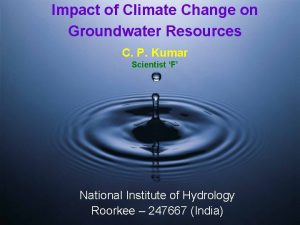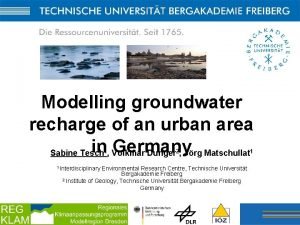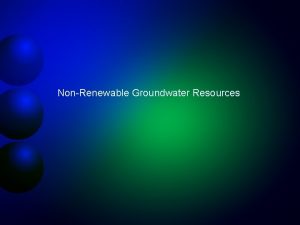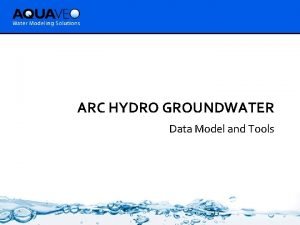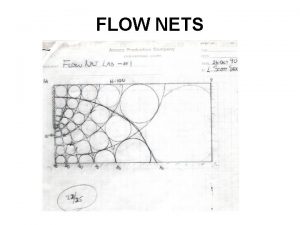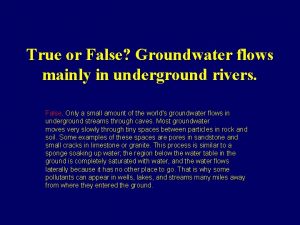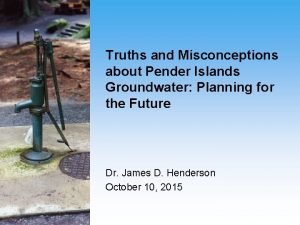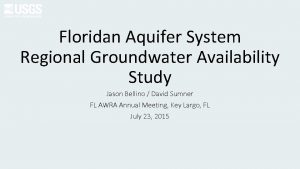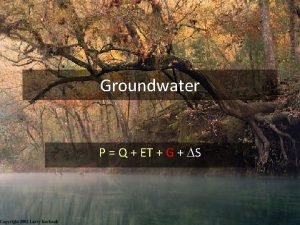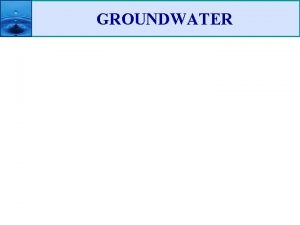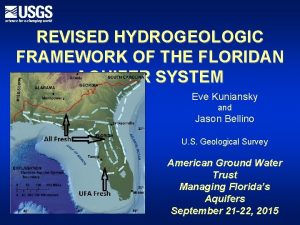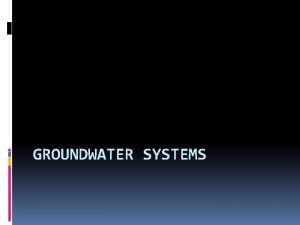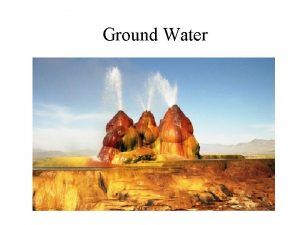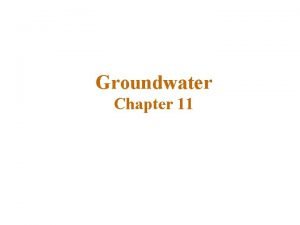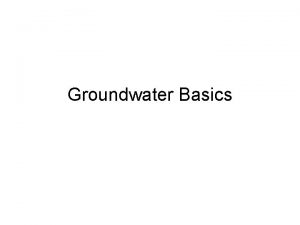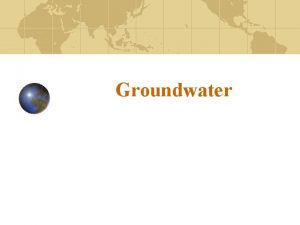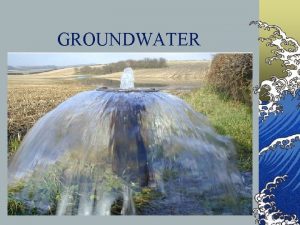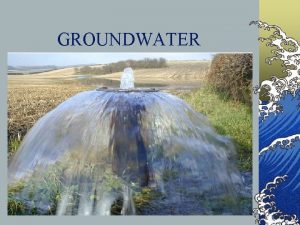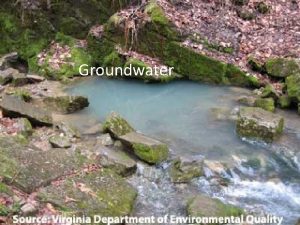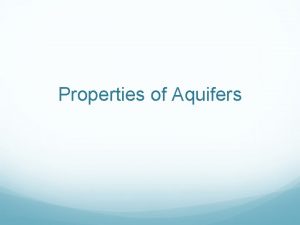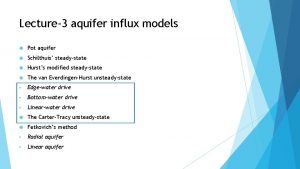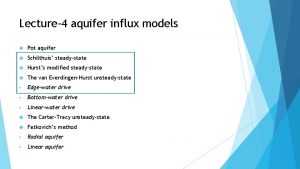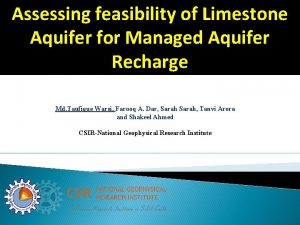Groundwater P Q ET G DS Floridan Aquifer





































- Slides: 37

Groundwater P = Q + ET + G + DS

Floridan Aquifer Extent

θpwp < θ < n Hydrologic Horizons θfc < θ < n θ=n Tension Pressure

Geologic Profiles (Stratigraphy)

Confinement

Transmissivity • How much water can be moved horizontally – Function of thickness and Ksat – Good measure of well productivity – Floridan is the most transmissive aquifer in the world

Loss of Potential




Potentiometric Surface • Elevation of “free water surface” • Where this surface and the ground intersect (and there’s no confinement) water seeps



Relevant Questions • Where is the water going? – Potentiometric (piezometric) surface • How much water is moving? How quickly? – Potentiometric surface and Darcys Law • What level of natural assimilation is occuring? – Water quality modeling

Gainesville’s Well Field Geology Land use Conservation Easement Also Lake City Jasper

Murphree Wellfield Cone of Depression 1988 (Observed) 2010 (Predicted)

How to make a sinkhole Pray for lots of Rain Suck a lot of water

Drilling and pumping Developed into a hole 300 ft deep and 300 ft wide Hundreds of sinkholes developed over a period of 6 hours.

Freeze Protection • To protect strawberry yield during a January freeze in 2010, ~ 2 billion gallons per day of water pumped over a 5 day period. Voila.

Groundwater and Wetlands

Subsidence Invasion Fire Degraded wildlife habitat

Artesian Springs • Where a confining layer exists, there may be a pressure potential in the aquifer HIGHER than the gravity potential of the surface. • When tapped, water flows upwards

P=Q+ET+G+ΔS Soil water movement across a watershed boundary. Q groundwater = K A ΔH/L Darcy’s Law Q is water crossing the defined area of the boundary in m 3/day Darcy’s law can calculate vertical leakage through a clay layer AND lateral flow through a seepage face.

Q= K A ΔH/L K is hydraulic conductivity, or the capacity of the media to transmit water Most meaningful as saturated hydraulic conductivity Ksat (m/day). Why?

Measuring Ksat • Constant Head Method – Constant depth of water (~50 mm) on top of a saturated soil column with known dimensions (diameter, length) – Outflow volume collected over a period of time (e. g. , 5 hrs) – Darcy’s Law to solve for Ksat

Measuring Ksat • Hvorslev Method – Field measurement in screened wells Log scale H/Ho K only determined casing 1. 8. 7. 6. 5 r H/Ho=. 37 . 4. 3 Le/R must be >8 . 2 Le t 37. 1 2 4 Gravel pack 6 minutes Linear scale 8 Screen 10 R high K material

Approximate Ksat and Uses Ksat (cm/h) Comments 36 Beach sand/Golf Course Greens 18 Very sandy soils, cannot filter pollutants 1. 8 Suitable for most agricultural, recreational, and urban uses 0. 18 <3. 6 x 10 -5 Clayey, Too slow for most uses Extremely slow; good if compacted material is needed

ΔH is the difference in H between two points Water flows from high ψtotal to low ψtotal (could be “up”) Point ψG ψP H A B C H = Ψgravity + Ψpressure H = level of water in an open well above some datum HA = ? HB = ? ΔH = ? Flow Direction? !?

H @ D? H@F? ΔH? 10 9 8 7 6 5 4 3 2 1 0 Direction?

ΔH AD? Dir? ΔH BF? Dir? ΔH AF? Dir? ΔH/L BF?

Vertical leakage problem Watershed=100 ha 6 5 4 3 Ksat=0. 001 m/d 2 1 0 Datum K? A? ΔH? L? Q=K A ΔH/L

Q = K * A * ΔH/L K = 0. 001 m/d A = 100 ha = 1, 000 m 2 ΔH = 5 -3 = 2 m L = 2 m Q = 0. 001 m/d x 1, 000 m 2 x 2 m / 2 m Q = 1, 000 m 3/day or 365, 000 m 3/year Q surface depth = 365, 000 m 3 / 1, 000 m 2= 0. 365 m

Lateral leakage problem Q=K A ΔH/L K=0. 1 m/d A=100 m x 50 m =5, 000 m 2 ΔH=108 m-105 m =3 m L=1, 000 m Qm 3/d= 0. 1 m/d * 5, 000 m 2 *0. 003 = 1. 5 m 3/d

Groundwater Flowpaths at Streams

Groundwater Discharges

Groundwater Flowpaths

Next Time… • Soil Water Storage
 The floridan aquifer is consolidated.
The floridan aquifer is consolidated. Confined aquifer vs unconfined aquifer
Confined aquifer vs unconfined aquifer Aquifer well
Aquifer well What is an aquifer?
What is an aquifer? Gulf coast aquifer
Gulf coast aquifer Ogallala aquifer
Ogallala aquifer Aquifer lsuhsc
Aquifer lsuhsc Dupits equation for unconfined aquifer
Dupits equation for unconfined aquifer Ogallala aquifer
Ogallala aquifer Edible aquifer lab activity answers
Edible aquifer lab activity answers Leaky aquifer
Leaky aquifer Ogallala aquifer
Ogallala aquifer Dockum aquifer
Dockum aquifer How does groundwater rejoin the water cycle
How does groundwater rejoin the water cycle Chapter 6 running water and groundwater
Chapter 6 running water and groundwater Njdep surface water quality standards
Njdep surface water quality standards Arc hydro groundwater
Arc hydro groundwater Way to reduce water pollution
Way to reduce water pollution Piezometer groundwater
Piezometer groundwater Groundwater system
Groundwater system Lenticels
Lenticels Groundwater porosity
Groundwater porosity Septic tank contamination groundwater
Septic tank contamination groundwater Groundwater modeling
Groundwater modeling Groundwater recharge pdf
Groundwater recharge pdf The importance of groundwater
The importance of groundwater Human impact on groundwater
Human impact on groundwater Brainpop.com water cycle
Brainpop.com water cycle Modflow analyst
Modflow analyst Arc hydro groundwater
Arc hydro groundwater Groundwater mining
Groundwater mining Iöz
Iöz Is groundwater renewable or nonrenewable
Is groundwater renewable or nonrenewable Arc hydro groundwater
Arc hydro groundwater Groundwater flow net
Groundwater flow net Groundwater information network
Groundwater information network Groundwater true/false quiz answers
Groundwater true/false quiz answers Groundwater
Groundwater
